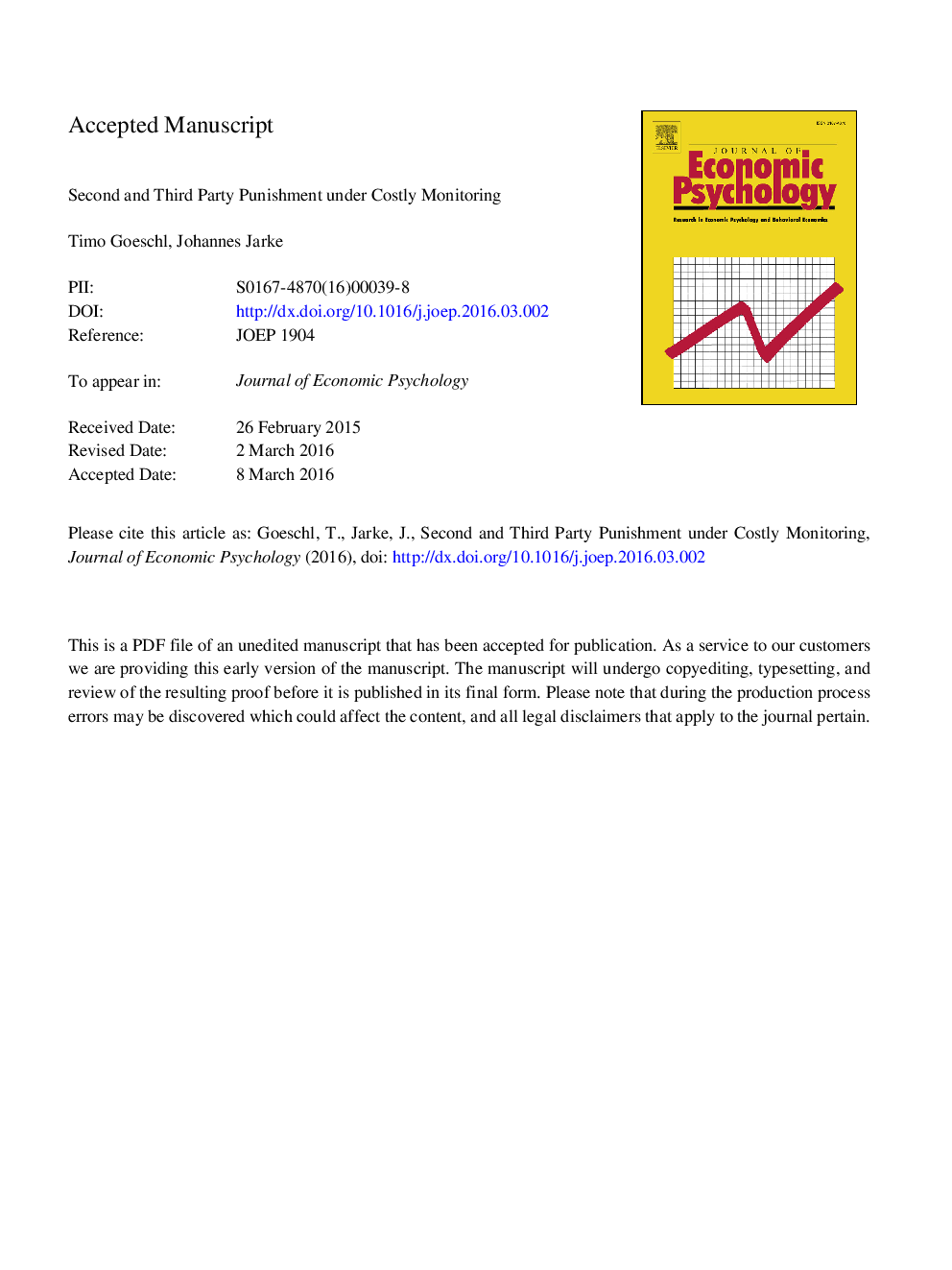| Article ID | Journal | Published Year | Pages | File Type |
|---|---|---|---|---|
| 7244364 | Journal of Economic Psychology | 2016 | 32 Pages |
Abstract
In a laboratory experiment we study how costly punishment behavior of second and third parties in a social dilemma situation is affected by monitoring costs. Subjects have to pay a fee over and above punishment costs if they wish to condition punishments on previous play, which is equivalent to a binary choice between the acquisition of perfect information on the target subject's behavior and no information at all. When monitoring is costly both second and third party punishment is weaker and less discriminate and hence generates weaker incentives for cooperation than when monitoring is free. There are subtle differences between second and third parties: The presence of monitoring costs leads subjects to withhold sanctioning more often as second parties than as third parties, and to punish indiscriminately more often as third parties than as second parties. The results contribute to the understanding of peer-enforcement of cooperation in social dilemmas and whether there is a common motivational structure underpinning second and third party punishment.
Related Topics
Social Sciences and Humanities
Business, Management and Accounting
Marketing
Authors
Timo Goeschl, Johannes Jarke,
